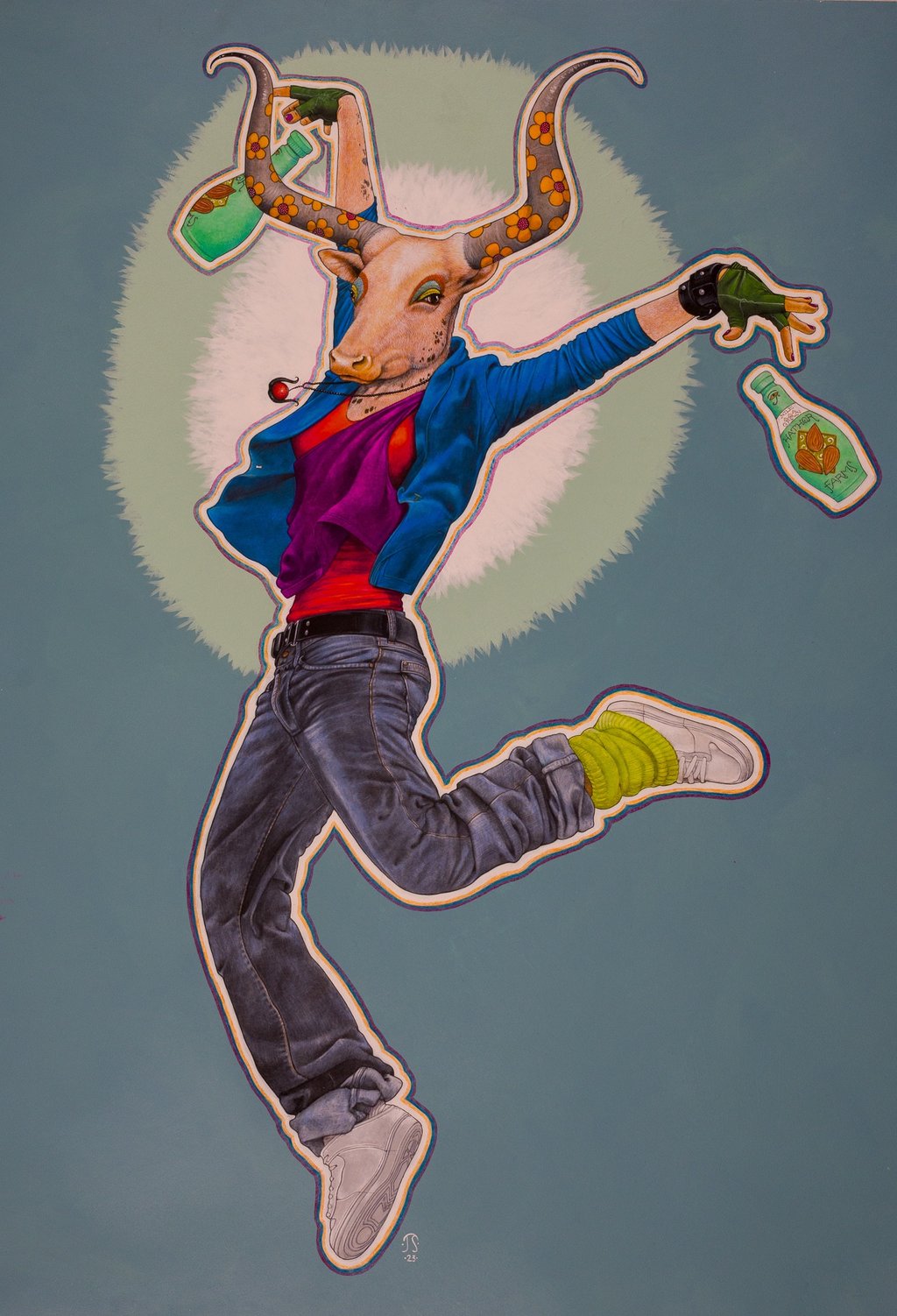

HipHopHath
24x30 Colored Pencil/Acrylic
Hathor is the Egyptian cattle goddess of cosmetics, dance, sexuality, and motherhood. She's usually represented in cow form but could also be a lioness, a cobra, or a sycamore tree because ancient Egyptians were an eclectic bunch. She's vegan and wants everyone to know that.
The transformation began in 1985 when Hathor first heard "Rapper's Delight" echoing through the Valley of the Kings during a late-night archaeological dig. The rhythmic poetry spoke to something deep within her divine essence – the same pulse that had guided ancient dancers in her temple ceremonies, the same flow that moved through her sacred sycamore groves. But it wasn't until she witnessed a group of young breakdancers spinning on cardboard outside a Cairo nightclub that she realized hip-hop was simply the modern evolution of everything she had always represented: raw creativity, bodily expression, and the courage to speak truth through art. That night, she shape-shifted from her traditional cow form into something entirely new – part goddess, part B-girl, all authentic.
HipHopHath's first mixtape, "Divine Bovine," dropped in the underground Cairo scene with tracks that sampled everything from ancient Egyptian harps to modern synthesizers. Her signature song, "Plant-Based Goddess (No Beef Here)," became an instant classic, combining sick beats with passionate advocacy for animal rights. The irony wasn't lost on her – a cattle goddess going vegan – but as she rapped in her breakout verse, "I protect the sacred herds, I don't consume / My temple's now a sanctuary, not a tomb." Her performances were legendary: she'd flow through verses while shifting between her various forms, sometimes spitting bars as a lioness, sometimes beatboxing as a cobra coiled around the mic stand.
The ancient Egyptian hip-hop scene exploded around her, with other deities trying to keep up (though Anubis's death-rap phase was universally panned, and don't get started on Set's short-lived nu-metal experiment). But HipHopHath remained authentic to her core message: respect for all living things, celebration of the feminine divine, and the understanding that true artistry comes from the soul, not the sacrifice. Her concerts became consciousness-raising events where attendees learned about sustainable agriculture between dance battles, and her merchandise table featured only cruelty-free cosmetics blessed by ancient Egyptian beauty secrets. When asked about her transition from traditional goddess to hip-hop icon, she'd simply smile and say, "Honey, I've been dropping beats since before humans invented rhythm – I just found better equipment."